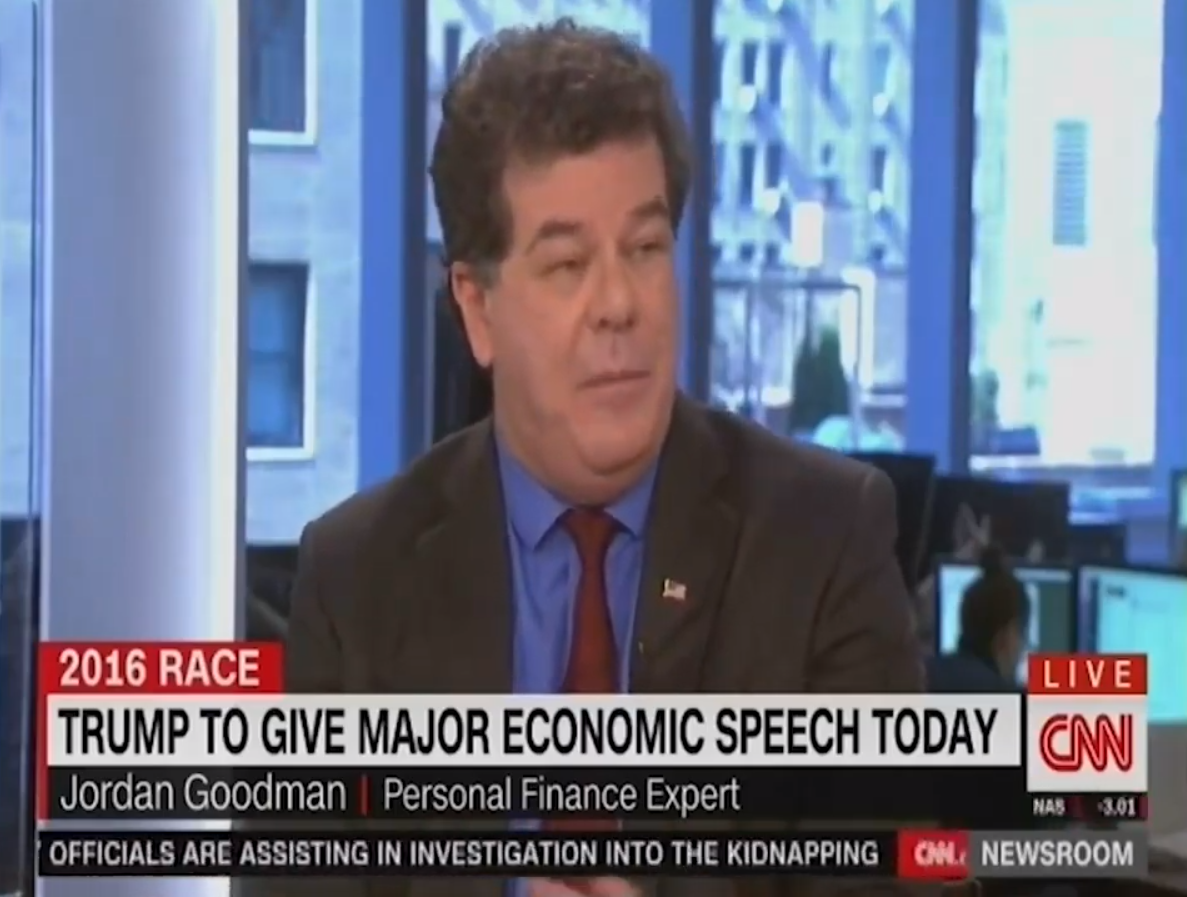
Screen capture

Audio By Carbonatix
Jordan E. Goodman markets himself as “America’s Money Answers Man.” He appears regularly on Fox News, CNN, CNBC, CBS, and even ABC’s the View. He spent 18 years as a Wall Street columnist for Money magazine.
For three years, he was also allegedly telling people to invest in a Ponzi scheme. The Securities and Exchange Commission announced yesterday that it had filed securities-fraud charges against Goodman in Miami federal court. The SEC says that from 2014 through 2017, Goodman told the public to invest in a series of California real-estate companies called the Woodbridge Group, which the SEC writes, was “a massive Ponzi scheme” that raised $1.2 billion.
While Goodman lives in New York, the SEC says that “several” of Goodman’s victims “who invested a total of nearly $2 million in Woodbridge securities reside in the Southern District of Florida.” The SEC says Goodman never told listeners that he was receiving undisclosed kickback payments when he referred a client to Woodbridge.
The SEC began going after the entire (alleged) Woodbridge scheme earlier this year: In November, the SEC whacked the CEO of the Woodbridge network of companies, Robert Shapiro, with a $120 million fine. According to the Wall Street Journal, the SEC alleged that Shapiro had suckered investors into spending money on his company — Shapiro said he was going to loan the money to various real-estate projects, but instead spent tons of it on himself and other companies he owned, the SEC says.
The SEC alleges Shapiro spent at least $21 million for personal expenses such as alimony and country-club fees. He also allegedly loaned money to companies he controlled, which then bought up luxury real-estate. And he used Ponzi scheme funds to buy a famous Los Angeles mansion called “Owlwood,” which had previously been owned by actor Tony Curtis and musicians Sonny and Cher. Finally, the SEC says Shapiro conned a few high-profile clients, including TV host George Stephanopoulos. Woodbridge filed for bankruptcy in December 2017, shortly before the SEC filed charges against the company.
(Shapiro ultimately settled with the SEC without admitting or denying guilt. His lawyer maintains Woodbridge was not, in fact, a Ponzi scheme.)
The SEC now says Goodman was making a substantial, undisclosed sum by telling people to send money to what the government contends was a preposterously huge scam. According to the SEC suit, Goodman advertised Woodbridge investments both in media appearances and in personal chats. For years, Goodman toured the country giving financial advice on radio segments, but then in 2014 started telling people to dump money into Woodbridge. He repeatedly touted Woodbridge’s investments as “safe and secure.” or “super safe.” He even told people to dump their retirement accounts into Woodbridge.
“When appearing on the radio, listeners often inquired what they should be investing in, and whether they could earn better returns than the minimal interest they were receiving in their Individual Retirement Accounts (“IRAs”),” the suit says.
In total, the SEC says Goodman helped Woodbridge raise $147 million from 1,200 investors in 28 states. In return, the government says, Goodman earned $2.3 million in kickbacks.
It appears financial writers caught on to Goodman’s alleged scheme months long ago: Multiple independent financial blogs and podcasts began warning investors earlier this year that Goodman was selling hogwash to unsuspecting people. On November 8, Goodman agreed to repay $2.6 million to the SEC. (Three other Florida sales agents for Woodbridge have also agreed to pay SEC fines.)
“The SEC has now charged 18 of Woodbridge’s highest-earning unregistered sales agents who sold more than $400 million of its securities to retail investors,” Eric I. Bustillo, director of the SEC’s Miami Regional Office, said today in a news release. “Our continuing investigation of Woodbridge seeks to hold those who aided this massive fraud accountable and to return funds to harmed investors.”